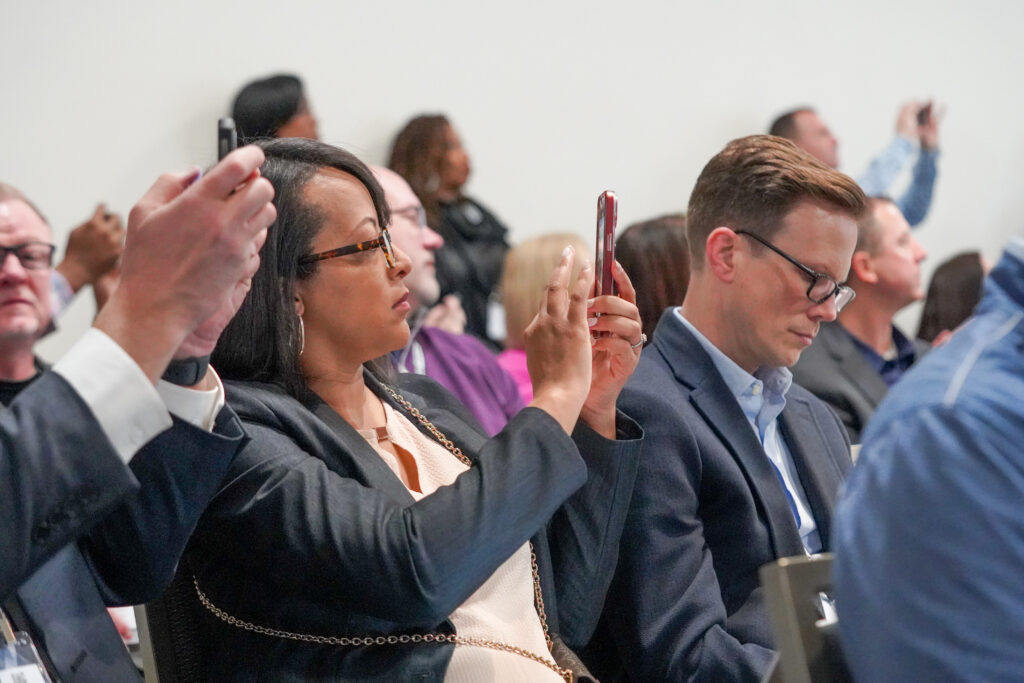How do we plan for the future as we continue to care for the present?
This is the question Bill Daggett, founder of both the Successful Practices Network and the International Center for Leadership in Education, explored with a full room of attendees of the AASA National Conference on Education on Friday.
Before delving into the nature of planning for children’s futures and its possible impact on current challenges, Daggett addressed a key point that would frame his entire discussion: “You cannot go faster than the rate of readiness and trust.”
He contextualized this comment around the current reality of artificial intelligence in education. In the pursuit of incorporating this new technology, how might educators find a balance between this sense of readiness and the need to keep up with innovation?
Daggett predicted a third wave of school reform due to AI (the first being A Nation at Risk in 1983 followed by No Child Left Behind in 2002). Similarly, he foresees educational businesses driving AI educational policies, leaving schools behind in the discussion of AI.
So what does this mean for educators? Daggett said that to harness the power of AI and use it in planning for the future, a shift of focus from content to skills needs to occur. Without diminishing the value of content-based instruction, Daggett outlined how in today’s educational society, content should enable the objective, but the acquisition and practice of skills should become the main objective.

Daggett supported his claims through the research conducted by McKinsey & Company in 2021 which outlined the 56 foundational skills that will help citizens thrive in the future of work. These skills were identified as the most valuable in the workforce and can be the guiding principles for skill-based instruction.
McKinsey Global Institute conducted similar research in 2023 that illuminated the percent of time spent using various skills. Results showed that cognitive skills only accounted for half of the necessary skills in the workforce. Socioemotional and technological skills yielded similar results but are significantly less funded in schools and curriculum.
Daggett identified this discrepancy and made a prediction. “I firmly believe assessments are going to change in the next 2-3 years,” he said.
The way in which we measure competency and capability, according to Daggett, is moving toward skill-based knowledge — skills that extend beyond cognitive capabilities like socioemotional skills and technological prowess.
“The change we need to make is in instructional practices,” he added, if schools would like to exit a state of recovery in regards to AI technology and move into a state of transformation.
Daggett outlined the means to do so through his Future Focused Design Process, saying that once readiness is achieved, districts may begin to address and provide new innovative instructional practices. He is hopeful these methods can help school systems prepare for an ever-changing future and simultaneously address the issues of today.
(Bradley Beggs is a reporter for Conference Daily Online and a master’s student at the University of California San Diego.)

